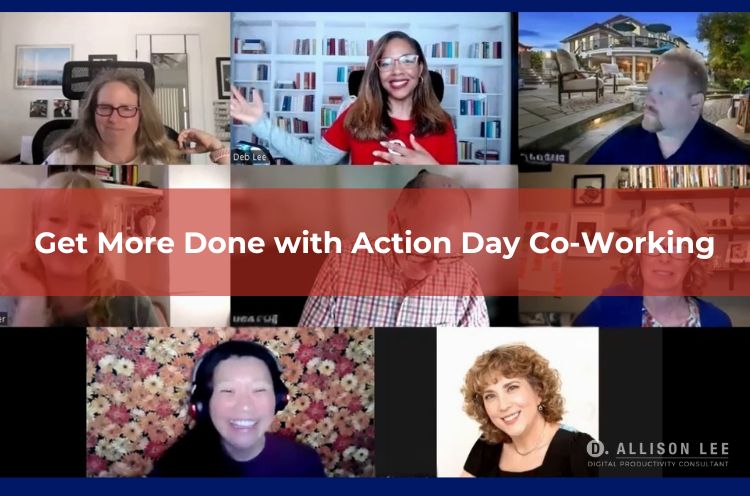Being productive when you don’t feel like it? Yeah, that’s tricky. You're not always going…

Create a Blogging Guide for Your Small Business Blog
Have you created a blogging guide for your small business blog? Why do you need one?
At first glance, blogging may seem to require little effort. Just sign up for WordPress, get a hosting company, grab a nice skin (or theme) for your blog, and then start writing. Simple, right?
In theory, it really can be that simple. But, if you’re serious about blogging, it often takes passion — for the topic you’re writing about and for the people who will be helped by reading it. This means that you will probably need time to craft posts that are so valuable that it’s almost impossible for them to not be helpful (even to at least one person).
[ctt title=”Have you created blogging guide for your small business blog? You should!” tweet=”Have you created a #blogging guide for your small business blog? You should! Here’s how to get started: https://ctt.ec/qd13s+” coverup=”qd13s”]
It also means that it will be helpful if you can be consistent about sharing quality information over an extended period of time. This is not easy to do (yep, personal experience talking) and the ability to regularly share content will mean that you have to be clear about the main topics you’ll write about.
In order to do all those things well, you will have to be focused and kick distractions to the curb. The process is not always easy to execute. In fact, before you pull out your laptop or tablet and fire up WordPress, you should think about the …
Things You Should Do BEFORE You Start Writing
Ideally, before you write any post, you should have a plan — not just for your individual posts, but also for the process you’ll use to craft juicy pieces of content. This doesn’t mean that you can’t write spontaneous and inspired posts. Of course, you can.
But, it can help to have a plan so you can capture and funnel your blog ideas into a repository (like Evernote or Trello) for safekeeping until it’s time to turn them into fully developed posts.
How to Create a Blogging Guide

- Capturing blog ideas. How will you keep track blog ideas and resources? Will you use a specific app (like the one’s I mentioned above) or write your ideas down in a notebook?
- Length of blog posts. Will your blog posts be epic (2000 words or more)? Short and sweet (300-500 words)? Or, somewhere in between? Will you shake things up a bit and have a combination of both epic and short posts?
- Types of posts. How do you feel about list posts? What about posts that recap interviews with industry leaders and influencers? Will you have a recurring topic? Will you create a blog series? Would you consider created some posts that only have images and videos and no text?
- Posting schedule. Will you schedule posts once per week? Several times per week? Will you write about specific themes on specific days? Oh, yeah, and will you add guest bloggers to the mix? If yes, what criteria will you use to accept or decline their posts?
- Writing habits. Will you write every day? Will you write and schedule several posts at once? Will you write the post on the day is scheduled to be published or a day in advance?
- Using an editorial calendar. Will you use a calendar to plan your posts across several months or will you “write from the heart” and when the mood strikes you? What type of editorial calendar will you use: digital, paper-based, or a plugin?
[ctt title=”Will you use an editorial calendar to plan blog posts in advance? ” tweet=”Will you use an editorial calendar to plan blog posts in advance? ~ @DAllisonLee https://ctt.ec/RJ6cB+ #blogging” coverup=”RJ6cB”]
When you answer these questions (and any others that come up for your specific situation), you’ll know what you’re working with, so to speak. This will be, in essence, a guide for you to follow every time you decide to put your fingers to your keyboard.
You will know exactly what you’re aiming for and this will give you a direction to go in. In other words, you’ll have a clear plan that’s reasonable to follow and keep up with. Planning in advance (start now!) will save you time and conserve your brain power so you can get on with focusing on writing your posts.
What’s your secret sauce? Do you use a blogging guide for your blog?




Hi Deb,
Starting with a vision is oh so key. I learned this with my new blog.
I started with an ideal reader in mind. Doing so helped me get super clear, from my domain selection, to blog title, to tag line, to ads shown, products created, to my posts, to my images selected, all the way down my blog. Everything about my blog says, “Blogging from Paradise”, because I started with that 1 idea in mind.
Plan. Start clearly. Don’t wing it. Folks respond well to clear topics, relevant to them, and the more clearly you can see your ideal reader, and their wants, problems and needs, the more easily you’ll be able to help them on their journey.
That’s the great secret; gain clarity about your ideal reader/customer, and you’ll be starting your blog from an intelligent space.
Stay on topic, hang with authorities in your niche and the sky’s the limit.
I love posts like these Deb. Simple, clear and easy to digest. You’re inspiring and helping many folks through your blog.
Thanks much. Tweeting through Triberr.
Ryan
This is so true:
“… gain clarity about your ideal reader/customer, and you’ll be starting your blog from an intelligent space.”
Btw, paradise sounds like a lovely place to be blogging from! Thanks for stopping by and showing some love via Triberr. =)
Deb
P.S. I know epic posts can be fabulous, but sometimes, short and sweet (and clear!) does an equally good job.
Hi Deb, I am starting to plan more when it comes to blogging. I am going to categorize my blog topics into 3 main categories, and then within those 3 categories, I will come up with topics. Thanks for the tips.
I love that you already have a plan. Please feel free to come back to share how it’s working for you. Btw, great idea to limit the number of categories you have. That will make it easier for you and your readers, too. Thanks for stopping by, Kathy. =)